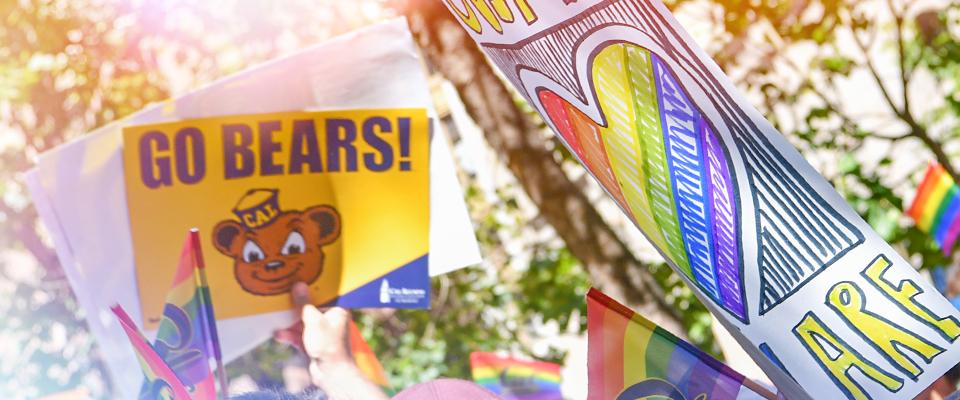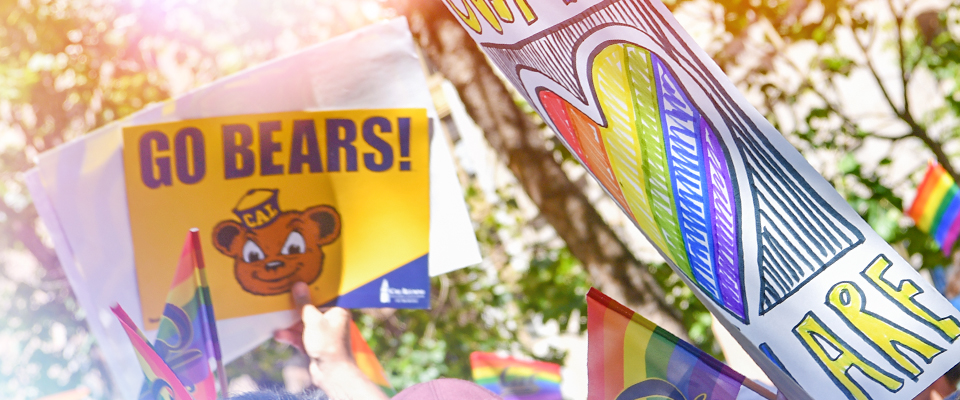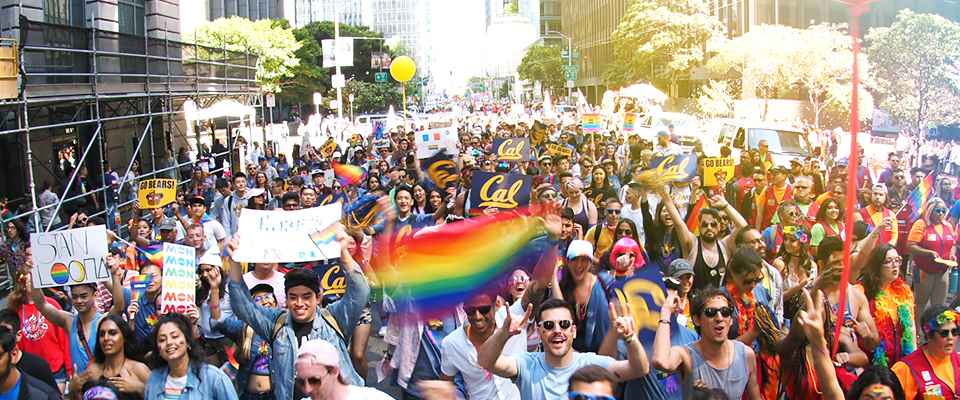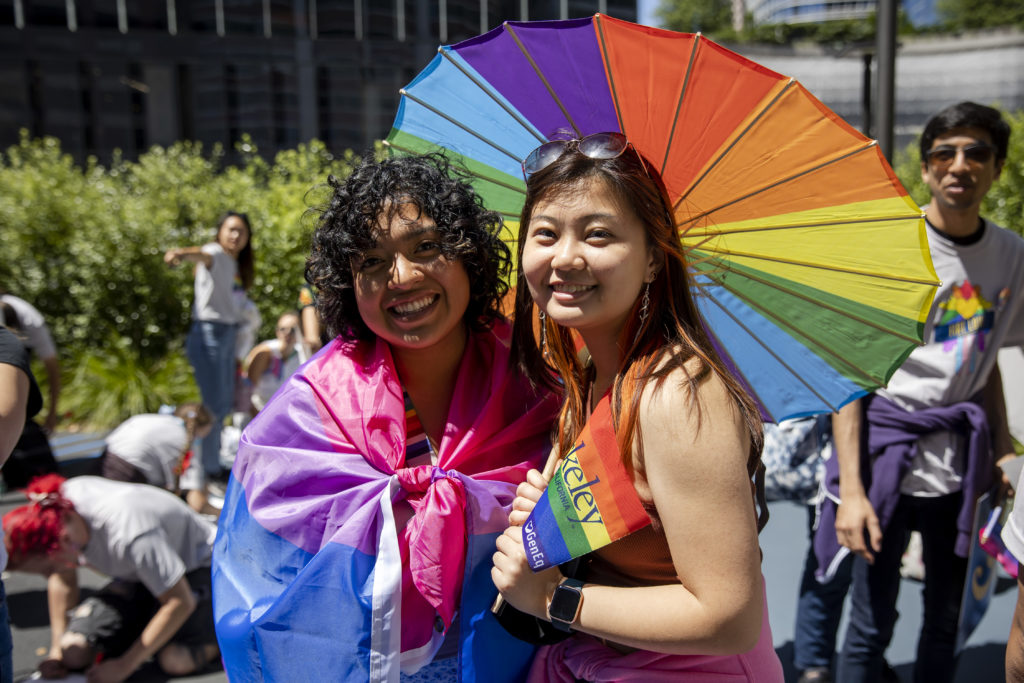UC Berkeley has long been at the forefront of social movements—Free Speech, disability rights, and environmental protection, to name just a few. Cal community members have also played critical roles in pushing for equal rights, visibility, and representation for the LGBTQ+ community.
Here are five moments—out of many—when Cal students, faculty, and alumni helped reach milestones for the LGBTQ+ community that all Cal alumni can look back on with pride.
1955: Cal alumnae Del Martin and Phyllis Lyon ’46 found The Daughters of Bilitis
Del Martin and Phyllis Lyon ’46 both attended UC Berkeley, but didn’t meet until they’d both graduated and were working for the San Francisco State Magazine.1 The two women began their relationship in 1952, in spite of the challenges and persecution that gay and lesbian individuals faced at the time from the US government and broader society. In 1955, Martin and Lyon had been living together for two years and were looking to socialize with other lesbians in less antagonistic spaces, so they co-founded a club called The Daughters of Bilitis (DOB), or The Daughters for short.2
The Daughters, which met at Martin and Lyon’s new home, served as an alternative to women who didn’t want to frequent gay bars to meet other lesbians. There were only eight original members of DOB, but the club grew to open different chapters across the country. The last chapter disbanded in 1995.3
1970: First openly-gay dance at UC Berkeley
In the spring semester, the Gay Students Union decided to host the first openly-gay dance ever to be hosted at UC Berkeley.4 The event took take place on the UC Berkeley campus at the Student Union’s Pauley Ballroom on May 22, 1970. News of this inaugural dance was so widespread that a KQED reporter even asked then-Governor of California, Ronald Reagan, for his reaction to this dance. He famously replied, “I haven’t been invited yet!”
When the news traveled back to Berkeley, the Gay Students Union wrote a letter to Governor Reagan and his wife, extending the invite their way. Students were encouraged to sign the letter and send it to Sacramento, which included a suggestion that the Reagans could donate the price of two tickets to the Berkeley Free Clinic in lieu of attendance.
1995: Creation of LGBT studies minor
In the early 1990s, student activists aimed to negotiate and create an LGBT studies program with the Berkeley administration.5 Carol Christ, then executive vice chancellor and provost of UC Berkeley, supported these students by approving funding for the Berkeley Bisexual Lesbian and Gay Center (BBLGC), which aimed to provide a curriculum specific to LGBT studies.6 Gender and women’s studies had already been established as a separate minor. LGBT studies introduced courses that focused specifically on LGBT history and unpacking issues in the discourse about sexual identities.
1999: Gender Equity Resource Center established
What UC Berkeley students currently know as the Gender Equity Resource Center (GenEq) began in the 1960s as the Women’s Resource Center.7 The Prytanean Alumnae Association led the university in creating a center that would support specifically women’s education and career development. It was only in October 1972, however, that the center was formally established as The Center for The Continuing Education Of Women.
Over the next several decades, the Center underwent changes to reflect the growing needs of students on campus and to further provide support services and leadership opportunities to women. In 1997, LGBT Programs & Services formally began on the UC Berkeley campus, and in 1999, these changes to develop more LGBTQ+-centered programming were integrated at the Women’s Resource Center. The center officially changed its name to The Gender Equity Resource Center in 1999 to mark the populations it would serve and its shift in philosophy and approach.
2017: Marching in the San Francisco Pride Parade
In 2017, the Cal Alumni Association (CAA) began partnering with the Gender Equity Resource Center (GenEq) to continue a tradition of leading a contingent of Cal alumni, faculty, and students to march in the annual San Francisco Pride Parade. GenEq has marched with Berkeley community members since 1998.
CAA and GenEq has continued to lead hundreds of marchers across many generations of the Cal community at subsequent pride parades, including the 2018 San Francisco parade and the 2017 and 2018 Oakland parades. At the 2018 San Francisco Pride Parade, GenEq director Billy Curtis was additionally honored as a community grand marshal. The Cal contingent will return to march in both the 2019 San Francisco and Oakland parades.





















